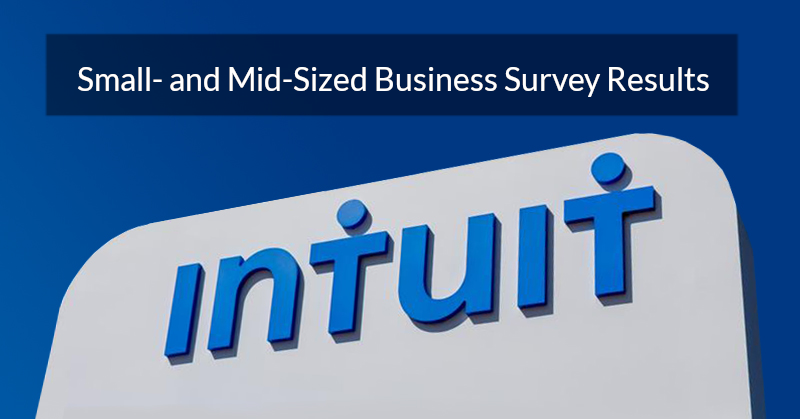Intuit's recent survey results provide valuable information to help accountants and bookkeepers meet their client needs, manage their practices, and create success for themselves and their clients.
Intuit survey results for small business
Intuit commissioned a study of 2,000 businesses in November 2021. Questions for the business owners involved several topics, including interesting responses around the continuing pivot to digital and priorities for and threats to small business in 2022.
The established trend of pivoting to digital will continue.
Over the past two years, most businesses were forced to pivot operations to include more (or all) online sales due to the impact of COVID-19. During 2021, 75% of respondents made significant changes to their businesses, with 25% changing their entire model. The top change made was more use of technology.
Both online only and brick-and-mortar businesses say that online revenue is important. Overall, more than 40% of businesses will be more reliant on online sales in 2022.
Small businesses identified their top five priorities and top five threats for 2022.
Here are the top five priorities for small business, in order.
- Increasing online sales
- Improving marketing results
- Developing new products/services
- Investing in technology
- Hiring new talent
Here are the top five threats to small business, in order.
- The economy
- Rising costs
- Supply chain problems
- Cash flow
- Low-price competitors
These priorities and threats open doors for accountants and bookkeepers to offer both entry-level coaching and high-value advisory services.
Intuit survey results for mid-sized businesses
In order to better understand how mid-sized businesses are embracing technology to grow, QuickBooks polled 1,000 business owners with 10 to 100 employees.
Apps for mid-sized businesses
Mid-sized business owners reported a strong usage of apps (86%). Among those that do use apps, on average they use 19 apps. Two-thirds of the businesses surveyed said they would pay $100 or more each month for an app.
Enterprise Resource Planning (ERP) Systems
Purchasing an Enterprise Resource Planning (ERP) system was a road to growth for 49% of respondents. Despite this, over half of those companies (47%) claim they don't use all of the ERP features and believe they overpaid for the software. Eighty-four percent of organizations say their present ERP system is too big for their specific needs. One of the biggest downsides of their present system, according to nearly half of the organizations questioned, is the lack of customization.
.png?width=150&height=63&name=TWRlogo-regmark_blueblack%20(1).png)
.png)









Do you have questions about this article? Email us and let us know > info@woodard.com
Comments: